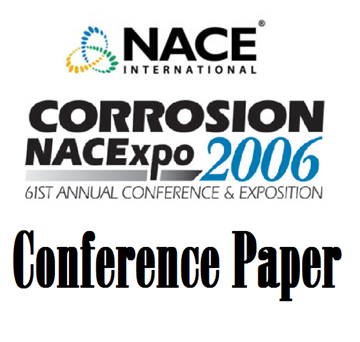Search
06474 Extending the Life of Fossil Fired Boiler Tubing with Cladding of Nickel Based Alloy Materials
Also Purchased
06465 BOILER INSPECTION TECHNIQUES: Tools and Degradation Identification
Product Number:
51300-06465-SG
ISBN:
06465 2006 CP
Publication Date:
2006
$20.00
06475 FACTORS THAT INFLUENCE THE PERFORMANCE OF HIGH-TEMPERATURE COATINGS
Product Number:
51300-06475-SG
ISBN:
06475 2006 CP
$20.00
06455 Material Selection for Hydrothermal Oxidation Processes for the Disposal of Chemical Demilitarization Hazardous Waste
Product Number:
51300-06455-SG
ISBN:
06455 2006 CP
$20.00




